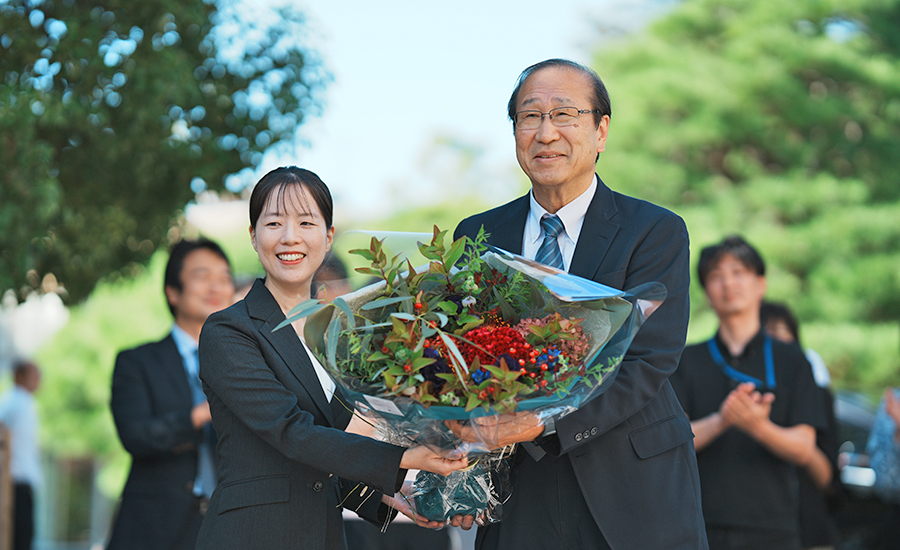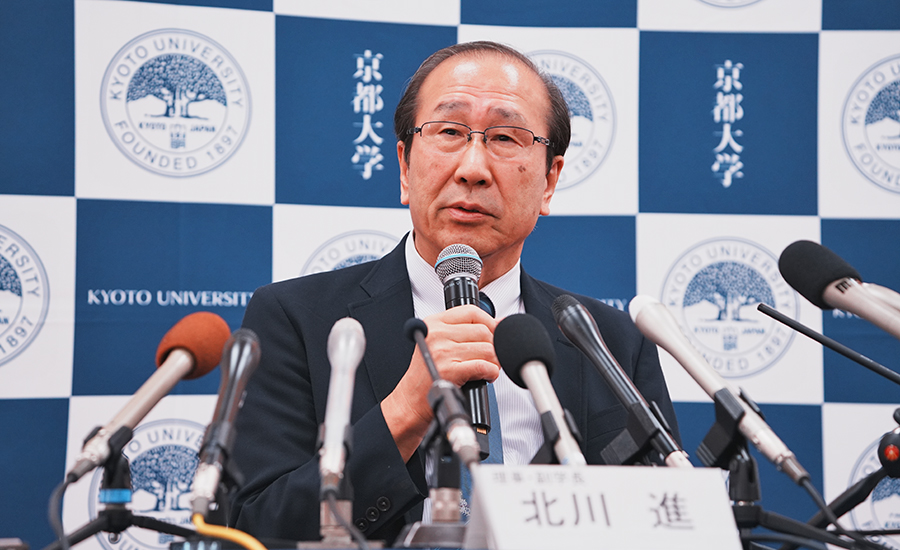On 9 October, Kyoto University hosted a ceremony to celebrate the recipient of the 2025 Nobel Prize in Chemistry Susumu Kitagawa, who serves as its executive vice-president for research promotion and distinguished professor at the Kyoto University Institute for Advanced Study (KUIAS). The award was announced on the previous day for Professor Kitagawa and two other scientists, Professor Richard Robson of the University of Melbourne and Professor Omar M Yaghi of the University of California, Berkeley, for the “development of metal-organic frameworks”.
At the ceremony held in front of the Clock Tower, Professor Kitagawa received a bouquet of flowers from the administrative staff of KUIAS, as a hearty round of applause rose from the assembled crowd.
This was followed by a press conference, where Professor Kitagawa made the comments summarized below.

Professor Kitagawa receiving a bouquet of flowers

Professor Kitagawa
Comments from Professor Kitagawa
Good morning, everyone. I’m once again receiving so many emails that I can hardly keep up with them all. The official documents will arrive by post, but the Nobel Committee has already sent me three emails in advance. One of them outlined what I’ll be doing during Nobel Week. It really made me realize how much there is to prepare for.
I feel it will be a while before I can truly look back on my research and let the feeling really sink in. I would really like to take time to think deeply about how to develop my research from here, but for now I am trying to make the most of my time and take care of my health. Alongside my research, I also serve as the Executive Vice-President for the University, and I hope to keep doing what I can for the University.
As advice for high school and university students who aspire to become researchers, I would say that it is important to cherish intellectual curiosity — a long-standing tradition at Kyoto University — and to pursue what you truly find fascinating. This means not merely building on what is already available in the world, but to create something entirely new from scratch. In other words, value the “use in uselessness”: even if something doesn’t seem useful at present, what is perceived as “useless” may, from another perspective, hold profound significance.
I also hope young people will not feel discouraged or think that “there’s nothing left to do” simply because so much research has already been done by their predecessors. I encourage them to instead persevere and take on new challenges. This is what I hope for the next generation.
There is no shortage of pressing issues that will serve as research topics in the future, such as those related to the environment, energy, life, and medicine. Science and technology have long contributed to human health and happiness in many ways, yet they also have their downsides. However, rather than rejecting science for its shortcomings, we scientists must continue to take on new challenges and strive to create better things and better systems. There remains an abundance of meaningful work to be done, and I hope young people will continue to immerse themselves in the joy of research.
Related links


AloJapan.com